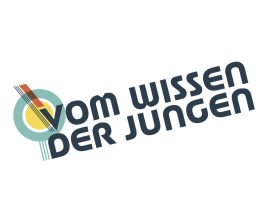Forerunners of the free market
Private enterprises founded by diaspora Poles with seed capital from the West produced a range of consumer goods for the domestic market in the late Polish People’s Republic, blowing a ‘wind of change’ into the planned economy over a decade before the transformation.
In economic terms, state socialism is usually associated with the monopoly of an authoritarian state over core elements of the economy such as trade, the distribution of resources, and the regulation of wages and prices. Yet, limited forms of legal private enterprise – often in the form of micro-craft and retail (family) businesses –existed sporadically in some state socialist countries, including Hungary and the GDR.1 Perhaps the most striking example, however, is the Polish People’s Republic, where a small private craft and retail sector beyond non-collectivized agriculture persisted more or less throughout the state’s entire existence. It was usually severely restricted by the authorities, but it also faced periods of liberalization, for example during de-Stalinization and in the 1980s.2
Despite the fundamental ideological aversion on the part of the state socialist regimes towards private entrepreneurship, it became an internal part of the economic landscape, mitigating the multiple dysfunctionalities of planned economies. Whenever the Polish People’s Republic, for example, underwent a severe economic crisis, with state-owned companies unable to fulfil fundamental consumer demands, the regime ‘lowered tax and other administrative restrictions’ for the private sector, despite its ‘ideological hatred towards private property’.3
With détente and the strengthening of economic relations between East and West under the banner of ‘peaceful coexistence’, some state socialist countries allowed limited private foreign direct investment (FDI) into their domestic economies. Examples include non-aligned Yugoslavia in the late 1960s; Romania, Hungary and Poland in the 1970s; Bulgaria in 1980; and the Soviet Union in 1987. The most common form of western FDI was through joint ventures between western enterprises and state-owned companies founded in these countries.4 The Polish People’s Republic, however, initially chose a different path of limited market opening for FDI from the West.

Warsaw 1977. Image: Erky-Nagy Tibor / source: Fortepan
Diaspora entrepreneurs
In order to improve living conditions and consumer demands, Poland’s trade relations with the West became increasingly import-heavy during the 1970s. The People’s Republic co-financed imports with generous western loans, which as a result of the global oil crises and rising inflation of the US-Dollar ultimately led to enormous debts.5
Seeking additional access to western foreign exchange, the authorities under Party secretary Edward Gierek issued particular legal directives that allowed the founding of foreign capital-based small and medium sized private enterprises (SMEs) from 1976. Since various forms of economic cooperation between parts of the Polish diaspora in the West (the so-called ‘Polonia’) and state socialist Poland had begun to grow significantly in the first half of the 1970s, Warsaw especially encouraged compatriots in the West to set up private SMEs in Poland.6
The western founders of such SMEs were expected to provide the full seed capital in western currency and to name a proxy – a person with permanent residence in Poland – who would act as the firm’s manager on-site. After a positive evaluation, the local authorities usually granted the firm with concessions for ten years, both for specific services and the production of certain consumer goods.7 Since the majority of the western investors belonged to the Polish diaspora in the West, these private SMEs became commonly known as ‘Polonia firms’ (firmy polonijne). Warsaw hoped a limited market opening for western (Polonia) FDI would bring an influx of western currency and know-how into the economy, as well an increase in the production and supply of domestic consumer goods that state-owned companies were unable to provide (at least in sufficient quantities). This would also reduce expensive imports from the West in the long term, so the regime anticipated.8
The first Polonia firms were founded in 1977 and grew in number particularly during the most critical period of political and economic crisis in Poland between 1981 and 1983 (from 151 firms to 491 firms). This increase can be explained by the dire supply situation on the domestic market and Warsaw’s desperate need for foreign exchange at that time. The regime therefore established beneficial tax conditions for Polonia firms and generally provided greater legal certainty for western founders of private SMEs, culminating in the first law on Polonia firms in July 1982.9
However, the immense profit margins of some Polonia firms and the ‘illegalities’ uncovered in many cases by the state control authorities, such as the Supreme Audit Office, led to an increasingly negative state press campaign and a tightening of tax and investment regulations between 1983 and 1985, after the Polish People’s Republic had overcome the worst crisis. This, in turn, caused a marked slump in newly founded firms after 1983.10
Regular conflicts also arose between the authorities, state-owned companies and Polonia firms, for example over the poaching of senior managers from the state sector (jobs in Polonia firms were much better paid) or the buying-out of raw materials from state-owned companies instead of importing them from the West.11
Despite the regime’s (necessary) economic pragmatism, it also distrusted Polonia firms for political reasons, and from 1976 onwards they were placed under constant surveillance by the security service.12
But even when conditions became more hostile after 1983, many of the existing Polonia firms continued to grow in terms of turnover and number of employees.13
The introduction of more restrictive laws towards Polonia firms between 1983 and 1985 did not mean Warsaw’s general rejection of further economic liberalization. On the contrary: in the second half of the 1980s, major liberalizing reforms – such as the Joint Venture Act of 1986 – permitted significantly greater investment capital from the West in the state economic sector.14 The economic reforms of the late 1980s in fact heralded the Polish People’s Republic’s transformation towards a market economy.15
At the same time, the search for large-scale investment capital in the second half of the 1980s disadvantaged the small and medium sized Polonia firms even further. For example, Joint ventures as defined by the 1986 law were offered better tax conditions than the Polonia firms, causing frustration among the latter.16
In 1988, however, more than 700 Polonia firms with over 70,000 employees operated in the Polish People’s Republic,17with most of the seed capital coming from West Germany, Great Britain, France, Austria and Sweden.18 Although many Polonia firms did not survive the system transformation, some owners, proxies and managers became highly successful entrepreneurs in post-socialist Poland. Entrepreneurial activity in a Polonia firm often served as a springboard for a successful business career after 1989.19
Quantitatively speaking, the Polonia firms were at best modestly beneficial to the Polish economy and made up only a marginal part of the non-collectivized sector. Their exports to the West were minimal because Polonia firms had to transfer a large part of their export earnings to the state, which made exporting highly unprofitable for them. Polonia firms therefore produced and sold their goods almost exclusively for the domestic market.
Ultimately, the overall inflows of western currency through Polonia firms and their willingness to reinvest their profits were far below the expectations of the party leadership.20
Warsaw’s success in mobilizing western Polonia, which often had a rejectionist attitude towards the Polish People’s Republic,21 was also limited – considering that, in the 1970s, the Polish authorities estimated the size of the western diaspora at between 12 and 14 million people.22
Selling a western lifestyle
Nevertheless, the overall influence of Polonia firms on the economy of late state socialist Poland should not be underestimated. Many became important producers and suppliers of everyday consumer goods and helped close the large gaps in supply caused by the state socialist shortage economy.
The denim jeans made by the Polonia firm Top Mart, founded in 1977 with seed capital from Canada, became extremely popular in the Polish People’s Republic: long queues formed outside the company’s salesroom in Kraków in the night before it opened. Top Mart quickly expanded to become a medium sized enterprise with 600 employees, producing a million jeans a year in its factory in the city of Łódź.23 Dekor, founded in 1977 with seed capital from Austria, produced a wide range of goods, from decorative articles, labels and stickers, to building materials.24 Haste, founded with capital from Sweden, started out making wooden furniture and quickly expanded, producing hygiene articles for infants or goods made out of polyethylene for the domestic market. 25
Other Polonia firms focused on electronic and IT-goods: Marco Electronic, for example, assembled and sold popular digital wristwatches in Poland.26 Impol II, set up with seed capital from Great Britain, became a major player in the domestic IT sector and produced, among other things, its own personal computer IMP-85, considered the ‘best product of its type in Poland’ in the mid-1980s.27 Yet other Polonia firms focused on the production of specialist goods. Plastomed, for example, founded in 1981, supplied the medical sector with much-needed pipettes and various plastic dishes for laboratory tests. The company often had to import the components it needed from the West, since the domestic market could not offer them at all.28
In addition to filling material gaps in the supply of consumer goods, Polonia firms were able to address the desires of large parts of Polish population in the 1980s for a ‘western’ consumer ‘lifestyle’. Although everyday goods produced by Polonia firms were in many cases of only slightly higher quality and often considerably more expensive than their state-sector equivalents, they enjoyed great popularity. As private enterprises, Polonia firms contributed significantly to the rise of new management, marketing and advertising strategies. They used western-sounding brand names and logos, selling their products using eye-catching western-style advertising and ‘aesthetic’ packaging, outperforming the often-inert state-owned companies.29
The Polonia firm Alpha, for example, advertised its zips (produced in Kraków) with Frankenstein’s face with a zipper on his forehead. Printed in a Polish business magazine, the ad was ‘shocking, but drew attention to the product’.30 Haste offered functional ‘Scandinavian style’ furniture,31 while the ‘tasty’ chocolate produced by Carpatia was popular with customers because of the ‘aesthetic interior design’ and the ‘shop displays’ in Carpatia’s salesrooms.32 The famous sport shoes of the Polonia firm Sofix, founded with seed capital from West Germany, gained great popularity because of their ‘Adidas a-like’ design.33 The perfumes of Inter Fragrances, one of the most successful Polonia firms (set up with seed capital from France), offered consumers the ‘smell of the West’ – or at least what they imagined that to be.34
Polonia firms were therefore successful not only in bridging gaps in the shortage economy of the late Polish People’s Republic. As private enterprises that operated within the structure of a state socialist planned economy, whose inherent weaknesses they skilfully exploited, they became forerunners for market-oriented entrepreneurship in a state socialist country and thus agents of economic change years before the Iron Curtain fell in 1989.
This article was written as part of the research project ‘A Breach in the System. The “Polonia Firms” 1976–1994’, funded by the Austrian Science Fund (FWF), project number: I 4877.
János Kornai, The Socialist State. The Political Economy of Communism (Princeton University Press 1992), 83–84.
See Maciej Bałtowski, Szymon Żminda, Sektor nowych prywatnych przedsiębiorstw w gospodarce polskiej – jego geneza i struktura. ‘Annales Universitatis Mariae Curie-Skłodowska. Sectio H, Oeconomia’, 2005, (39), 55–67.
Dariusz Tomasz Grala, Przedsiębiorstwa z kapitałem zagranicznym pochodzenia polonijnego jako enklawa kapitalizmu w PRL i ‘inkubator przedsiębiorczości’ liderów biznesu w III RP. UR Journal of Humanities and Social Sciences, 2019, 3 (12), 79–80.
Andrea Komlosy, ‘Austria and the permeability of the Iron Curtain: from bridge-building to systemic change’, in: Gertrude Enderle-Burcel et al. (ed.), Gaps in the Iron Curtain. Economic Relation between Neutral and Socialist Countries in Cold War Europe (Kraków 2009), 109–110; Besnik Pula, Globalization under and after Socialism. The Evolution of Transnational Capital in Central and Eastern Europe (Stanford University Press 2018), 83.
Pula 2018, 77.
See Bernadetta Nitschke-Szram, ‘Ekonomiczny wymiar współpracy Polskiej Rzeczpospolitej Ludowej z Polonią na przykładzie działalności przedsiębiorstw polonijno-zagranicznych’. Studia Zachodnie, 2017, 19, 209–228; Grala 2019.
Rozporządzenie Rady Ministrów z dnia 14 maja 1976 r., Dziennik Ustaw Nr. 19, Poz., 123.
Grala 2019, 79
Grala 2019, 80, 86.
See Florian Peters, Von Solidarność zur Schocktherapie. Wie der Kapitalismus nach Polen kam (Berlin 2023), 163–183; Grala 2019.
Krzysztof Lesiakowski, ‘Kierunki działalności kontrolnej NIK wobec przedsiębiorstw polonijno-zagranicznych w latach osiemdziesiątych XX wieku’, in: Komunizm. System/Ludzie/Dokumentacja 8 (2019), 51–72; Polonia firms as private enterprises usually had no access to the state distribution of raw materials, Stanowisko PPIH Inter-Polcom w sprawie wyników kontroli PIH i Ministerstwa Finansów, in: Inter Polcom Informator 1 (1983), 7.
See Mirosław Sikora, ‘Koncesjonowany kapitalizm.Służba Bezpieczeństwa MSW a “spółki polonijne“ w PRL (1976–1989)’, in: Dzieje Najnowsze 45/3 (2014).
Fakty w Statystyce, in: Inter-Polcom Informator 1 (1989), 70.
Dariusz T. Grala, Reformy gospodarcze w PRL (1982–1989). Próba uratowania socjalizmu, Warszawa 2005, 258.
Grala 2005, 325.
Jan Rymarczyk, ‘Ani mrówka, ani słoń. O przedsiębiorstwach zagranicznych drobnej wytwórczości w Polsce wszystko, a przynajmniej prawie wszystko’, in: Inter-Polcom Informator 9–10 (1987), 32.
Fakty w Statystyce, in: Inter-Polcom Informator 1 (1989), 70.
Sikora 2014, 127.
Krzysztof Jasiecki, Elita Biznesu w Polsce. Drugie Narodziny Kapitalizmu (Warszawa 2002), 191.
See Grala 2019.
For Polonia opposition networks and their influence on the Polish diaspora in the West see: Lars Fredrik Stöcker, Bridging the Baltic Sea. Networks of Resistance and Opposition during the Cold War Era (London 2018).
Archiwum Akt Nowych (AAN), ‘Towarzystwo Łączności z Polonią Zagraniczną ‘Polonia’ w Warszawie’. Ośrodek ekonomiczno-prawny, 2/1140/13/7, Współpraca ekonomiczna z Polonią 1970-`1974, Tezy do wystąpienia min. St. Długosza na spotkanie z tow. W. Kraśko, 15.02.1975, 1.
Florian Dłużak, ‘Firma Top Mart była pierwsza’, in: Almanach Polonii 1984, 226-229.
Prezentujemy firmy. Dekor, in: Inter-Polcom. Informator 5–6 (1982), 24–25.
Prezentujemy firmy, Haste, in: Inter-Polcom Informator 2 (1982), 22.
Archiwum Narodowe w Krakowie (ANK) 29/712/6575, Protokół Kontroli, 28.
Nasza firma a postęp naukowo-techniczny, in: Inter Polcom Informator 1 (1984), 30–31.
Prezentujemy firmy, Plastomed, in: Inter-Polcom Informator 3 (1982), 28.
See Grala 2019.
Sławomir Siwek, Kilka uwag o reklamie handlowej, in: Inter-Polcom Informator 9 (1982), 31.
Prezentujemy firmy, Haste, in: Inter-Polcom Informator 2 (1982), 22.
Prezentujemy firmy, Carpatia, in: Inter-Polcom Informator 5-6 (1983), 28.
See Katarzyna Dębek, ‘Sofix - powrót adidasów Europy Wschodniej’, in: forbes.pl, published on 10.12.2019, https://www.forbes.pl/biznes/sofix-marka-butow-z-prl-u-zostala-reaktywowana/c9yv4kz (02.02.2024).
Stephanie Weismann, ‘Es liegt was in der Luft. Geruchslandschaften der Volksrepublik Polen im Wandel’, in: L’Homme. Europäische Zeitschrift für Feministische Geschichtswissenschaft 31/2 (2020), 89.
Published 29 March 2024
Original in English
First published by Eurozine
Contributed by RECET © Martin Gumiela / Eurozine
PDF/PRINTIn collaboration with
In focal points
Newsletter
Subscribe to know what’s worth thinking about.
Related Articles

Expectations, standards, and requirements in higher education vary from country to country. In the third episode of the Knowledgeable Youth podcast Ukrainian students embark on the complex subject of tertiary education.

The crux of different peoples’ history, and of humanity as a whole, is always food and hunger. In the final analysis, it’s the stomach that counts.






